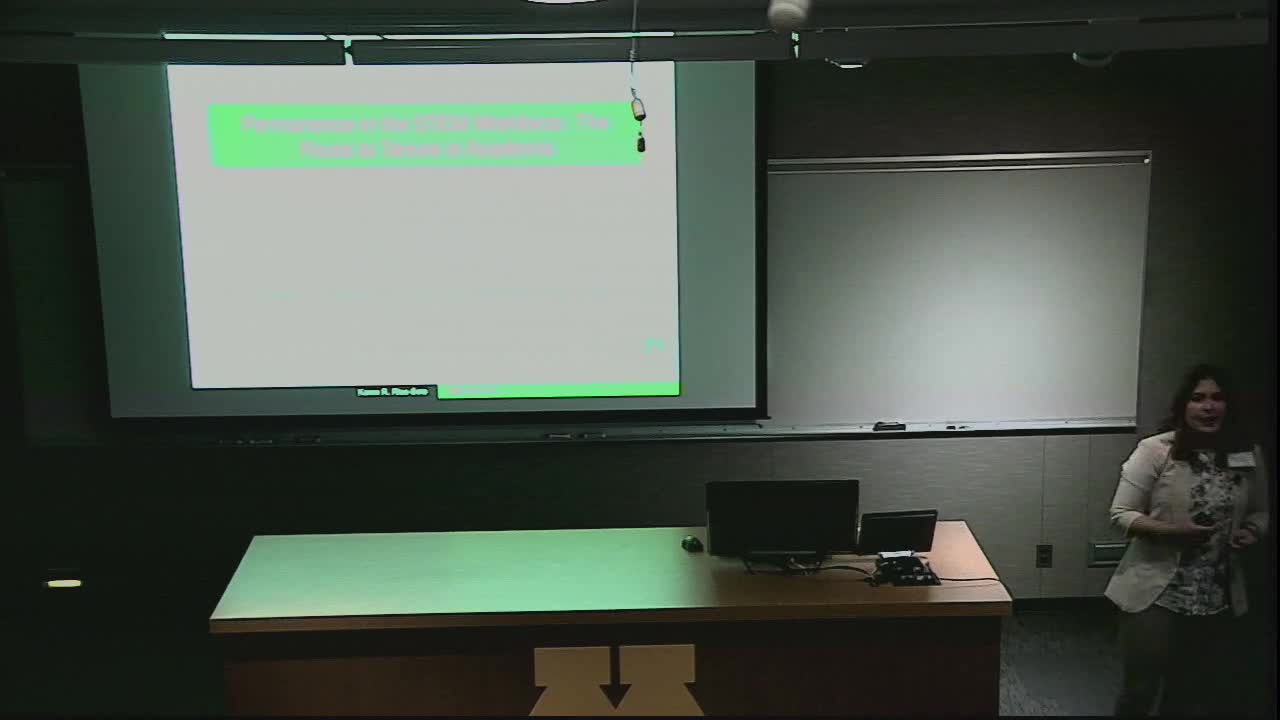Permanence in the STEM Workforce: The Route to Tenure in Academia
Presenters
March 27, 2015
Abstract
Description: Once you are in your chosen profession, how can you make sure you are climbing the promotion or tenure ladder? This session will help to understand the culture and institutional expectations behind academic departments. The session will be interactive, through narratives of personal experiences from the presenters.
Session Goals: The main goal of this session is to provide tools for junior professionals and scientists to help them stay in their chosen professional/career path. The speakers will share their own personal experiences and give some advice and tips on how to stay focused on strategies that will help them climb the promotion ladder. The session will create a broader understanding of the culture and institutional expectations behind academic departments in order to make their promotions more likely. The session will be interactive, through narratives of personal stories from the presenters. Strategies for collaborations, getting research partnerships, publications and external funding will be included.
Dr. Karen Rios-Soto obtained her PhD from Cornell University in 2008. She has ample experience in the development of students through educational, research and mentorship activities from the undergraduate to the doctoral level. She has supervised undergraduate research for more than 25 students, and is currently supervising 4 master’s level students. She has been involved with the REU-Mathematical and Theoretical Biology Institute (MTBI) at Arizona State University (ASU) for more than 11 years. She has participated there as an undergraduate student, graduate student, and faculty and for the summers of 2010, 2011, 2012 as the summer director for the program. Under MTBI she has supervised more than 5 undergraduate summer research projects. She is also an Adjunct Associate Professor at the Mathematical, Computational and Modeling Science Center in ASU. Dr. Ríos-Soto’s research interests are in mathematical epidemiology, the modeling of disease dynamics, population biology and social dynamics. In particular, her research is driven by the study of the mechanisms underlying the spread of infectious diseases, their control and prevention. She also worked on theoretical approaches to study dispersal in epidemics and the impact of transient populations on disease dynamics. Her most recent interests are in studying how transient population impacts disease dispersion and persistence, as well as the impact of particulate matter such as PM10 in lung diseases. Other research projects are on estimation of epidemiological parameters from disease data, in particular for dengue fever.
